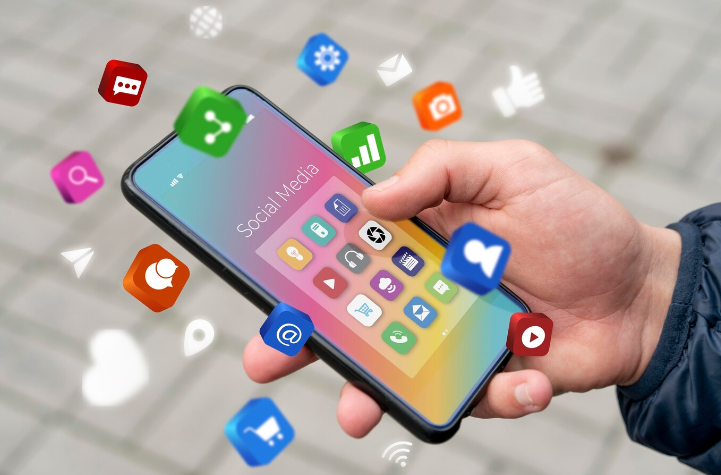Introduction
Social media apps have revolutionized the way we communicate, connect, and consume information. Platforms like Facebook, Instagram, Twitter, and TikTok have become integral parts of our daily lives. However, while these apps offer numerous benefits, they also have a dark side that can have significant impacts on our mental health, privacy, and overall well-being. In this article, we'll explore the hidden dangers of social media apps and what you need to know to protect yourself.

Mental Health Implications
The Illusion of Perfection
Social media is often a highlight reel of people's lives, showcasing their best moments and achievements. This constant exposure to seemingly perfect lives can lead to feelings of inadequacy and low self-esteem. Users might start to compare themselves to these unrealistic standards, resulting in anxiety, depression, and a distorted self-image.
Cyberbullying and Harassment
The anonymity provided by social media can embolden individuals to engage in cyberbullying and harassment. Victims of online bullying can experience severe emotional distress, leading to long-term psychological effects. The constant connectivity means that the harassment can follow them everywhere, making it difficult to escape and recover.
Addiction and Time Management
Social media apps are designed to be addictive, with endless scrolling features and notifications that keep users engaged. This addiction can lead to significant time wastage, impacting productivity and leading to procrastination. Over time, this can affect work, studies, and personal relationships.
Privacy Concerns
Data Mining and Targeted Advertising
Social media platforms collect vast amounts of data about their users, from personal information to browsing habits. This data is often used for targeted advertising, which can feel invasive and manipulative. Users may not be fully aware of the extent to which their data is being collected and used.
Data Breaches and Hacking
The vast amount of personal data stored on social media platforms makes them attractive targets for hackers. Data breaches can expose sensitive information, leading to identity theft and financial loss. Even with strong privacy settings, users are still at risk of their data being compromised.
Surveillance and Tracking
Many social media apps track users' locations and activities, often without explicit consent. This constant surveillance can feel intrusive and raises significant privacy concerns. Users may find it challenging to maintain their privacy and control over their personal information.
Social and Behavioral Impacts
Echo Chambers and Polarization
Social media algorithms are designed to show users content that aligns with their interests and beliefs. While this can create a personalized experience, it can also lead to echo chambers where users are only exposed to viewpoints similar to their own. This can reinforce biases and contribute to social polarization.
Fake News and Misinformation
The rapid spread of information on social media makes it easy for fake news and misinformation to go viral. This can have serious consequences, from influencing public opinion to affecting election outcomes. Users may struggle to discern credible sources from misleading ones, leading to confusion and mistrust.
Impact on Relationships
While social media can help maintain connections, it can also strain relationships. The pressure to present a perfect image online can lead to misunderstandings and jealousy. Additionally, excessive use of social media can detract from face-to-face interactions, leading to feelings of isolation and loneliness.
The Role of Algorithms
Manipulation of Content
Social media algorithms are designed to maximize user engagement, often at the expense of well-being. By prioritizing sensational and emotionally charged content, these algorithms can manipulate users' emotions and behaviors. This can lead to increased anxiety, stress, and overall negativity.
The Pursuit of Virality
The desire to go viral can lead users to engage in risky or harmful behavior. From dangerous challenges to spreading false information, the pursuit of online fame can have real-world consequences. This culture of virality can pressure individuals to prioritize online popularity over safety and authenticity.
Protecting Yourself
Setting Boundaries
To mitigate the negative impacts of social media, it's essential to set boundaries. Limit the time spent on these apps and be mindful of how they affect your mood and behavior. Consider taking regular breaks and engaging in offline activities to maintain a healthy balance.
Privacy Settings and Awareness
Regularly review and update your privacy settings to control what information you share and who can access it. Be cautious about the personal information you post and consider the long-term implications. Stay informed about the latest privacy policies and data protection measures.
Critical Thinking and Media Literacy
Developing critical thinking skills can help you navigate the vast amount of information on social media. Question the credibility of sources and be wary of sensational headlines. Educate yourself on how to identify fake news and misinformation to make informed decisions.
Conclusion: Navigating the Dark Side
While social media apps offer numerous benefits, it's crucial to be aware of their potential dangers. By understanding the risks and taking proactive steps to protect yourself, you can enjoy the advantages of social media while minimizing its negative impacts. Stay informed, set boundaries, and prioritize your mental health and privacy.
